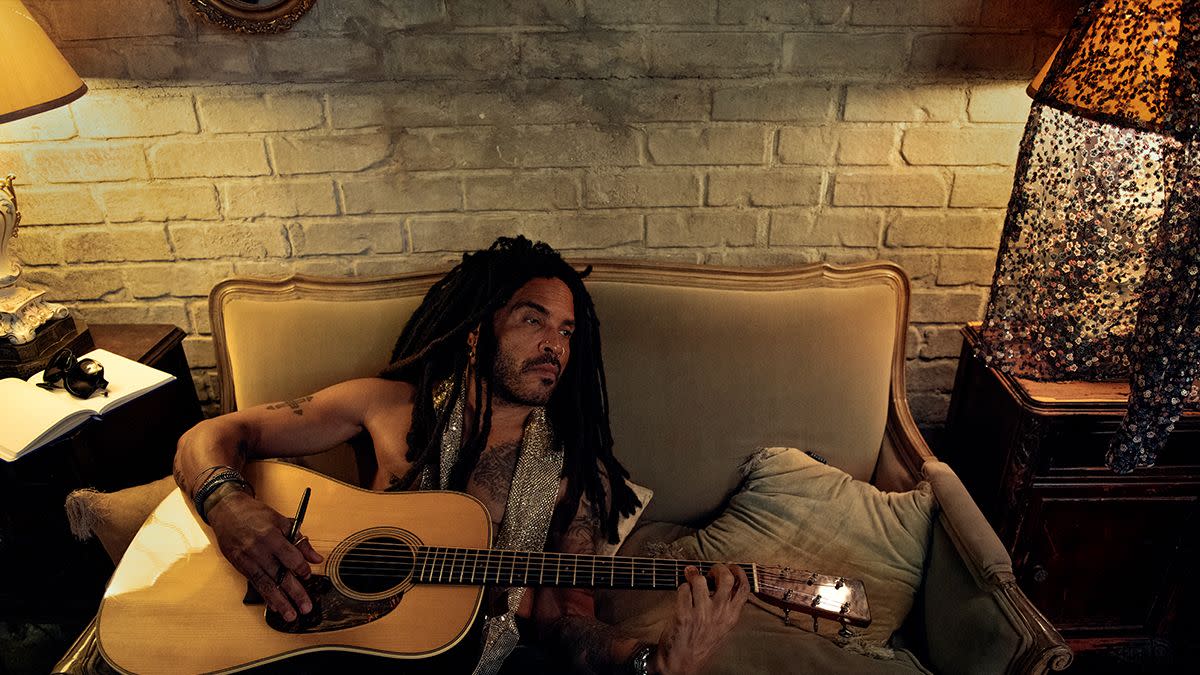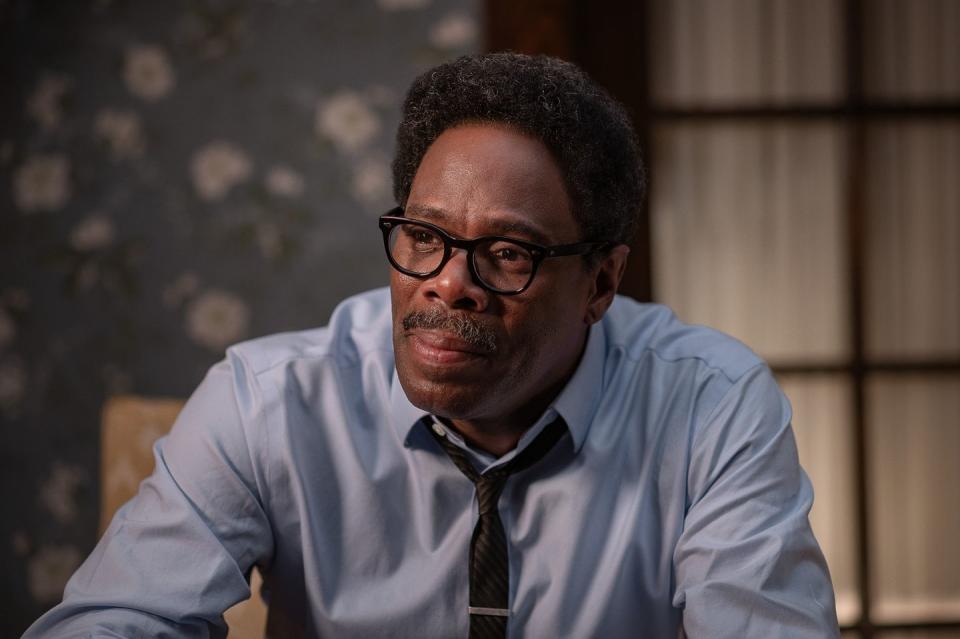Lenny Kravitz Opens Up About Writing 'Road to Freedom'

- Oops!Something went wrong.Please try again later.
Lenny Kravitz knows how to get loud. He's been turning up the dial on his particular blend of funk and rock since his 1989 debut, Let Love Rule. And he'll go one notch further in March with the arrival of Blue Electric Light, his 12th studio LP. But Kravitz's creativity occasionally serves other visions, like his recently-released track, "Road to Freedom."
Recorded for the soundtrack to Netflix's new Bayard Rustin biopic, Rustin, the cut is utterly bombastic in its embrace of horns and choral arrangements; uplifting and steely-eyed, it is both a perfect example of everything Kravitz does so well in song and completely surprising, even for longtime fans. Last week, in the first sign of a potentially busy awards season ahead for the rocker, the song earned a Golden Globe nomination for Best Original Song - Motion Picture.
As a follow-up to Esquire's winter issue, which features Kravitz on its cover with an in-depth profile of the artist, Kravitz recently hopped on the phone to discuss waiting for divine inspiration to strike, getting feedback from director George C. Wolfe, and calling Colman Domingo "out of the blue." This conversation has been edited for clarity and length.
Esquire: So often when we tell stories of protest and progress and people who fought for radical change, the focus is overly weighted on the struggle. What I loved about watching Rustin and listening to "Road to Freedom" is that both the movie and, especially, the song really embrace the joy of advocacy. They're so uplifting. So full of hope.
Lenny Kravitz: It had to be. I love the way the film ends because it really gives you such a deep look at his humility. It was about the work. It wasn't about basking in the light, the accolades. And, at the end, when he could have gone through the White House with everybody else and had that moment, he decided to pick up trash with the other people. Keep the work moving. That was so beautiful to me—and then the song had to come right after that.
The song has to work right in that immediate context that you're talking about, but also independently, as a stand-alone song. Were you given any wish list or road map from director George C. Wolfe?
I spoke with George. I got vibes from him. He was the one who brought up the whole thing about trombones. The sound of the trombone was something that he already had in his mind—which comes from these trombone choirs that play hymns and gospel music in the Carolinas. So I researched that, and then I spoke with Colman [Domingo, who plays Bayard Rustin]. I called him out of the blue and said, "Look, you just embodied this person. Give me something." And he said, "You know Lenny, the only thing that's coming to me is the work. It's about the work." That made its way into the lyric, of course.
So I took all of that in and then I just got quiet. For a couple of days, I just walked around the house, did my thing, because, for me, I'm an antenna. I'm just here to pick up whatever I'm supposed to pick up. I'm not trying to influence it in any way. And then I sat down at the piano one afternoon—I felt something coming—and it just came out.
Waiting for inspiration to strike sounds like a process that requires a lot of faith and patience. I'd imagine it's also a little different when you are on a whole movie production's timeline.
Normally, I don't ever sit down to write. I just live. I move. I do what I do. And then when I hear something, a small idea even, that sparks the process. I turn in the music when I turn it in. I have no time limit. But in this situation, the movie's finished, they've edited it. They're waiting for me. I'm not used to that. So I have to know and be confident that it's going to come to me.
But it does always come. And it did all work out—even down to, like, I'm in Paris. Where am I going to get an African gospel choir? We found one that I did not even know existed that was in Paris. I thought I was going to have to go to New York or London. They came right over to the house and we did it.

Once it was written, did you turn it over to George as a finished product or was there back and forth?
We would go syllable by syllable. This word, that word. George was like, "I understand what you're saying and I understand that it means what we need to say, but there's another way to say it." And that went on for like three weeks.
At first, because I'm not used to that, it was frustrating. And George knows me–I've known George since I was 17 or 18 years old—and he just kept pushing me. And I told him the other night, I said, "You were right, bro. Thank you for pushing me. Thank you for opening me up to collaborating." It was a wonderful process.
Highly different from how you normally make music.
It was good for me because I am alone working so much. I write the songs, I play the instruments, I produce. It's not like I'm trying to be alone. It just happens to be the way I work—I end up being alone. So it was something that opened me up to future collaboration.
What I love about making movies, and I don't make that many, but what I love about them is A) it's not about me and B) it's about serving a director and a character, and I get to be around all these people. I think I just need more of that in my life, to rub with people and work with people.
You saw the film to write the song, but have you watched it as a finished product in the time since?
I don't know how many weeks ago, but I was in the Bahamas and I was working on some things and I remembered, oh, the movie's out. So I went home one night, got in bed after a long day in the studio, put on Netflix, kicked back and watched it like anyone would watch it. And then when it got to the end and the song kicks in, I just thought, it worked. I enjoyed it very much. It was beautiful.
You Might Also Like

